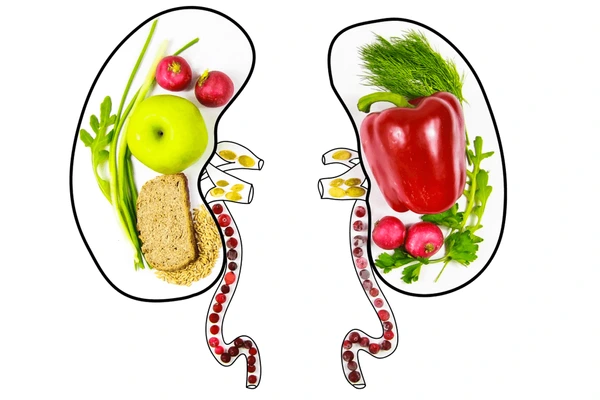When diagnosed with kidney disease, it is best for you to make some immediate dietary changes.
Your nephrologist and if you have a specialized nutritionist will suggest changes based on your lab results, physical condition, and lifestyle.
There are some common best practices that generally apply across what is called a ‘Renal Diet’. These generally focus on reducing the following:
- Protein – Reduced kidney function leads to your body not being able to process and filter out protiens and by products which will lead to an elevated Creatinine level
- Potassium – When your kidneys are compromises, your body cannot filter out excess Potassium which can lead to some unpleasant side effects.
- Phosphorus – Without proper kidney function, phosphorus can build up in your bloodstream. This can make you sick and lead to other problems.
- Sodium – As a high sodium diet can cause increased blood pressure fluid retention and reduce kidney function, often you will be limited in sodium intake
- Fluid Intake – With reduced kidney function, you will need to adjust how much and what type of fluids you consume. Water is the best option, and certain things will be removed from your diet – such as dark sodas and citrus drinks and other significantly reduced – like dairy or alcohol.
- Sugar Intake – Particularly for diabetic patients, it is best to maintain a healthy blood sugar.
Generally speaking you will have to change your diet to reduce all of the above. Certain foods that you previously enjoyed may need to be removed from your diet – generally those high in potassium and phosphorus including these popular items:
- Potatoes
- Banananas
- Toamtoes
- Milk
- Ice Cream
- Certain Cheeses
- Grapes and Raisins
- Lentils
- Nuts
- Biscuits
- Red Meat*
- Sugary Drinks
- Cola or other dark sodas
And other foods are recommended to be consumed more:
- Plant based proteins
- Fish*
- Dark Leafy Vegetables – such as spinach or kale
- Apples
- Strawberries
- Water
- If you can’t avoid, light colored sodas such as Ginger Ale or Lemon Lime.
Your diet will determine how hard your kidneys will work – so we recommend following your Nephrologist and Nutritionist guidelines vs just following our advice. We have more detail about diet in our Nutrition Information page.
Limiting certain foods from your diet, and adding some specific replacements will help you feel better and have better lab results. You definitely want to preserve as much kidney function as possible and diet is the best adjustment you can do to improve your prognosis, or delay moving to further stages of the disease.


Leave a Reply
You must be logged in to post a comment.